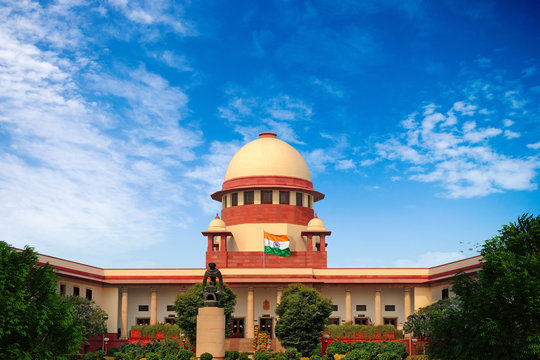The Supreme Court recently cautioned against placing undue reliance on dying declarations to convict a person in a criminal case, particularly when there are doubts about the correctness of the dying declaration. [Irfan @ Naka vs. State of Uttar Pradesh]
A dying declaration is a statement made by a person explaining the cause and/or circumstances leading to their impending death.
A bench of Justices BR Gavai, JB Pardiwala, and Prashant Kumar Mishra ruled that when there is any suspicion over the genuineness of a dying declaration, the same cannot be the sole basis for conviction.
“Where there is any suspicion over the veracity of the same or the evidence on record shows that the dying declaration is not true it will only be considered as a piece of evidence but cannot be the basis for conviction alone,” the Court said.
The Court then proceeded to lay down eleven factors that can be considered by courts to decide how much reliance should be placed on a dying declaration before convicting a person.
These are:
(i) Whether the person making the statement was in expectation of death?
(ii) Whether the dying declaration was made at the earliest opportunity? (known as the “rule of first opportunity”)
(iii) Whether there is any reasonable suspicion to believe that the dying declaration was put in the mouth of the dying person?
(iv) Whether the dying declaration was a product of prompting, tutoring or leading at the instance of the police or any interested party?
(v) Whether the statement was not recorded properly?
(vi) Whether the dying declarant has an opportunity to clearly observe the incident?
(vii) Whether the dying declaration has been consistent throughout?
(viii) Whether the dying declaration in itself is a manifestation or fiction of the dying person’s imagination of what he thinks transpired.
(ix) Whether the dying declaration was itself voluntary?
(x) In the case of multiple dying declarations, whether, the first one inspires truth and is consistent with the other dying declaration?
(xi) Whether, as per the injuries, it would have been impossible for the deceased to make a dying declaration.
The Supreme Court also acknowledged that there can be no hard and fast rule as to when dying declarations should be accepted. Courts have a duty to decide on whether to rely on a dying declaration based on the facts of each case and after being convinced of its veracity, the bench added.
The Court made the observations while acquitting a death-row prisoner, Irfan, who had earlier been convicted by the trial court and the Allahabad High Court for the murder of his son and two brothers.
The Court acquitted Irfan, after expressing doubts about the credibility of the dying declarations, which were the basis of his earlier conviction. In particular, the Court expressed apprehensions about the ‘mode and manner’ in which they were recorded.
The bench explained that, generally, the reason why sanctity is attached to a dying declaration is two-fold:
(i) Ethically and religiously it is presumed that a person while at the brink of death will not lie,
(ii) From a public policy perspective it is aimed to tackle a situation where the only witness to the crime is not available.
All the same, it remains the duty of courts to finally determine whether dying declarations are credible, the Supreme Court underscored.
“Dying declaration while carrying a presumption of being true must be wholly reliable and inspire confidence. Where there is any suspicion over the veracity of the same or the evidence on record shows that the dying declaration is not true it will only be considered as a piece of evidence but cannot be the basis for conviction alone,” the Court said.
The Court added that dying declarations can be relied on only if they are proven to be voluntary, truthful, and delivered by a victim who was in a fit state of mind.
The bench also observed that where there are doubts over the credibility of such declarations, courts have to treat them as part of evidence that needs to be corroborated.
“It is just not enough for the court to say that the dying declaration is reliable as the accused is named in the dying declaration as the assailant. It is unsafe to record the conviction on the basis of a dying declaration alone in the cases where suspicion, like the case on hand is raised, as regards the correctness of the dying declaration“, the Court held.
Senior Advocate Gopal Sankaranarayanan, briefed by anti-death penalty advocacy organization Project 39A, appeared for the accused in this case, Irfan.
Additional Advocate General Ardhendumauli Kumar Prasad represented the UP government.

